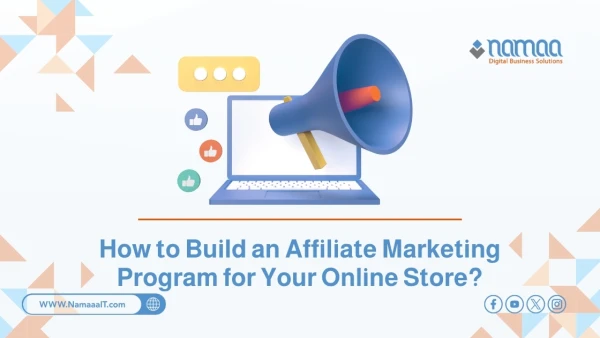Top Accounting Software for Businesses
Here are three of the best accounting software solutions that offer flexibility and cater to different business needs:
1. QuickBooks Online
QuickBooks Online is one of the most popular accounting software among small and medium-sized businesses due to its user-friendly interface and flexible financial management capabilities. It offers features such as:
✔ Electronic invoicing and payment tracking
✔ Automated bank account integration for real-time updates
✔ Payroll management and tax calculations
✔ Advanced financial reporting
Additionally, QuickBooks integrates seamlessly with PayPal, Shopify, and other platforms, making it an ideal choice for e-commerce businesses.
2. Xero
Xero is a cloud-based accounting solution that enables businesses to manage their finances from anywhere. It features:
✔ A modern and intuitive interface
✔ Multi-user access for accountants and employees
✔ Automated invoicing, payment scheduling, and cash flow monitoring
✔ Integration with over 800 business applications
Xero is perfect for businesses seeking a flexible and customizable financial management solution.
3. Zoho Books
Zoho Books is a cost-effective accounting solution designed for small businesses. Key features include:
✔ Automated billing and expense tracking
✔ Detailed financial reporting
✔ Integration with Zoho CRM and Zoho Inventory
✔ Compliance with various accounting standards
Zoho Books is ideal for companies needing a fully integrated business management system.
How to Choose the Right Accounting Software for Your Business
When selecting accounting software, businesses should consider several key factors to ensure efficient financial management:
✔ Company Size & Industry Needs: Small businesses require basic features like invoicing and expense tracking, while larger firms need more advanced solutions such as payroll management, inventory control, and financial analytics.
✔ Ease of Use: The software should have an intuitive interface to minimize training time and improve efficiency. Reliable customer support is also essential.
✔ Integration Capabilities: Businesses using CRM or ERP systems should select accounting software that integrates seamlessly for efficient data management.
✔ Security & Data Protection: With increasing cybersecurity threats, businesses must choose software with robust encryption, automatic backups, and advanced security features.
Learn about: Best Accounting Software for Businesses
Cloud vs. Traditional Accounting Software
Accounting software is divided into two main types:
✔ Traditional Accounting Software: Installed on company computers, offering complete control over data but requiring internal IT resources and manual updates.
✔ Cloud Accounting Software: Accessible online from any device, offering real-time updates, remote access, and automatic software updates.
? Key Differences:
✔ Flexibility: Cloud software allows access from anywhere, while traditional software is restricted to installed devices.
✔ Security: Traditional software provides greater control over sensitive data, while cloud solutions use advanced encryption & backup systems for protection.
The choice depends on business needs, remote work dependency, and IT budget.
Accounting Software Pricing
The cost of accounting software varies based on several factors:
✔ Pricing Model: Some software solutions use a monthly/annual subscription model (e.g., QuickBooks Online, Xero), while others require a one-time payment (e.g., certain Sage editions).
✔ Business Size & Needs: Small businesses need basic accounting features, while larger enterprises require advanced financial management tools, increasing costs.
✔ Integration Capabilities: Software that supports seamless CRM and ERP integration tends to be more expensive.
✔ Security & Cloud Storage: Solutions with enhanced security and cloud backup often come at a higher price.
? Tip: Businesses should balance cost and features to ensure maximum value.
The Future of Accounting Software
As technology advances, accounting software is evolving with automation and AI, transforming how businesses manage their finances.
✔ Cloud-based solutions will dominate, enabling remote access & improved collaboration.
✔ AI & machine learning will automate financial analysis, helping businesses make data-driven decisions.
✔ Blockchain & digital currencies will revolutionize payment security & financial transparency.
✔ Seamless ERP & e-commerce integration will streamline financial operations.
With these developments, businesses will benefit from greater accuracy, efficiency, and smarter financial management.
Key Accounting Software Market Statistics
? Market Growth: The global accounting software market is projected to reach $20 billion by 2026, driven by AI & cloud technology.
? Efficiency Boost: Automated accounting solutions improve financial management efficiency by 30%.
? Business Adoption: Over 80% of businesses now rely on cloud-based accounting software for real-time financial tracking.
? Data Security Impact: 75% of businesses cite enhanced security & fraud prevention as key benefits of modern accounting software.
? Cost Reduction: Companies using AI-powered accounting tools reduce manual processing costs by 40%.
? Integration Growth: 90% of businesses seek accounting software that integrates seamlessly with other digital tools like CRM & ERP systems.




.webp)
.webp)


